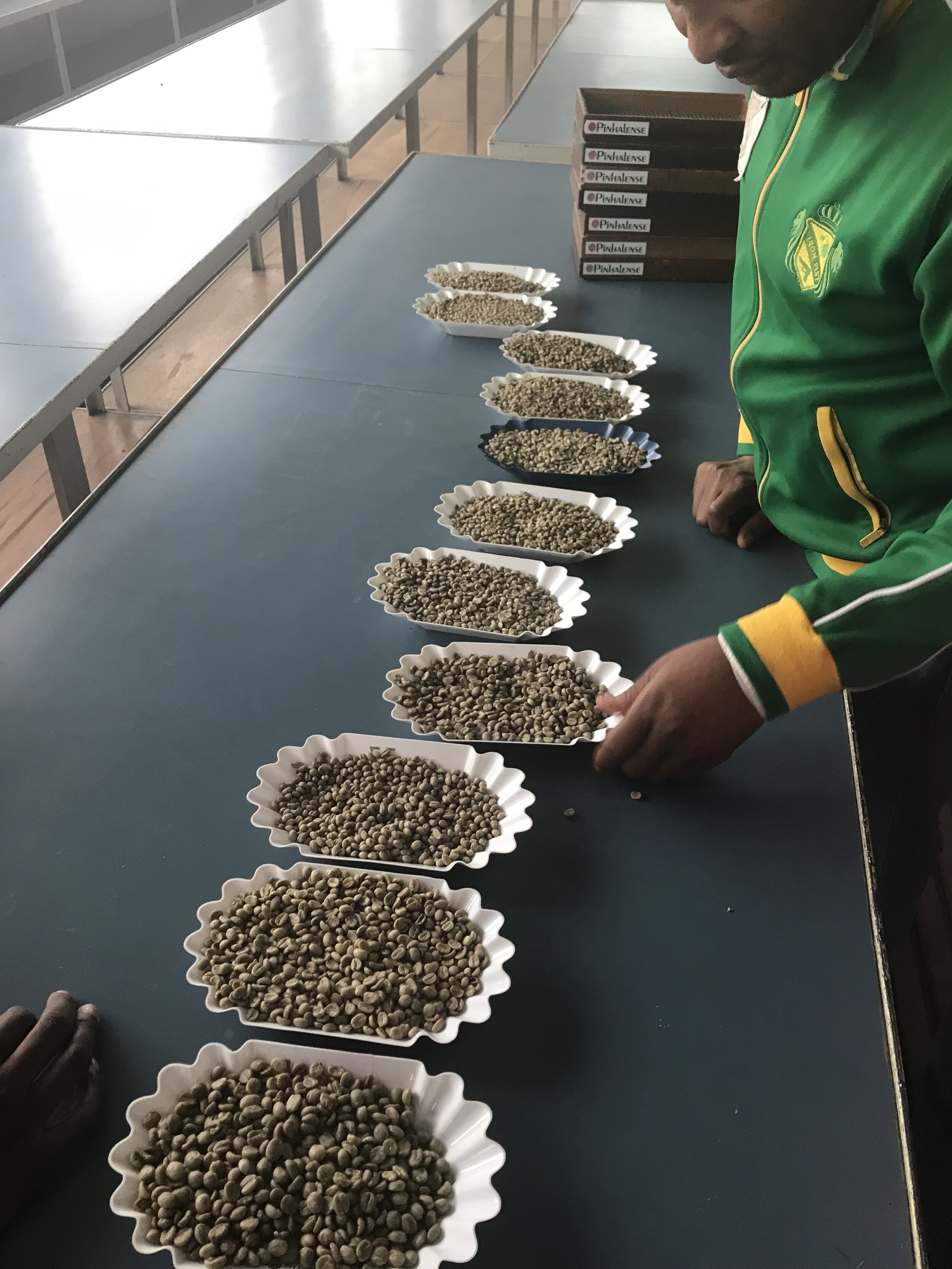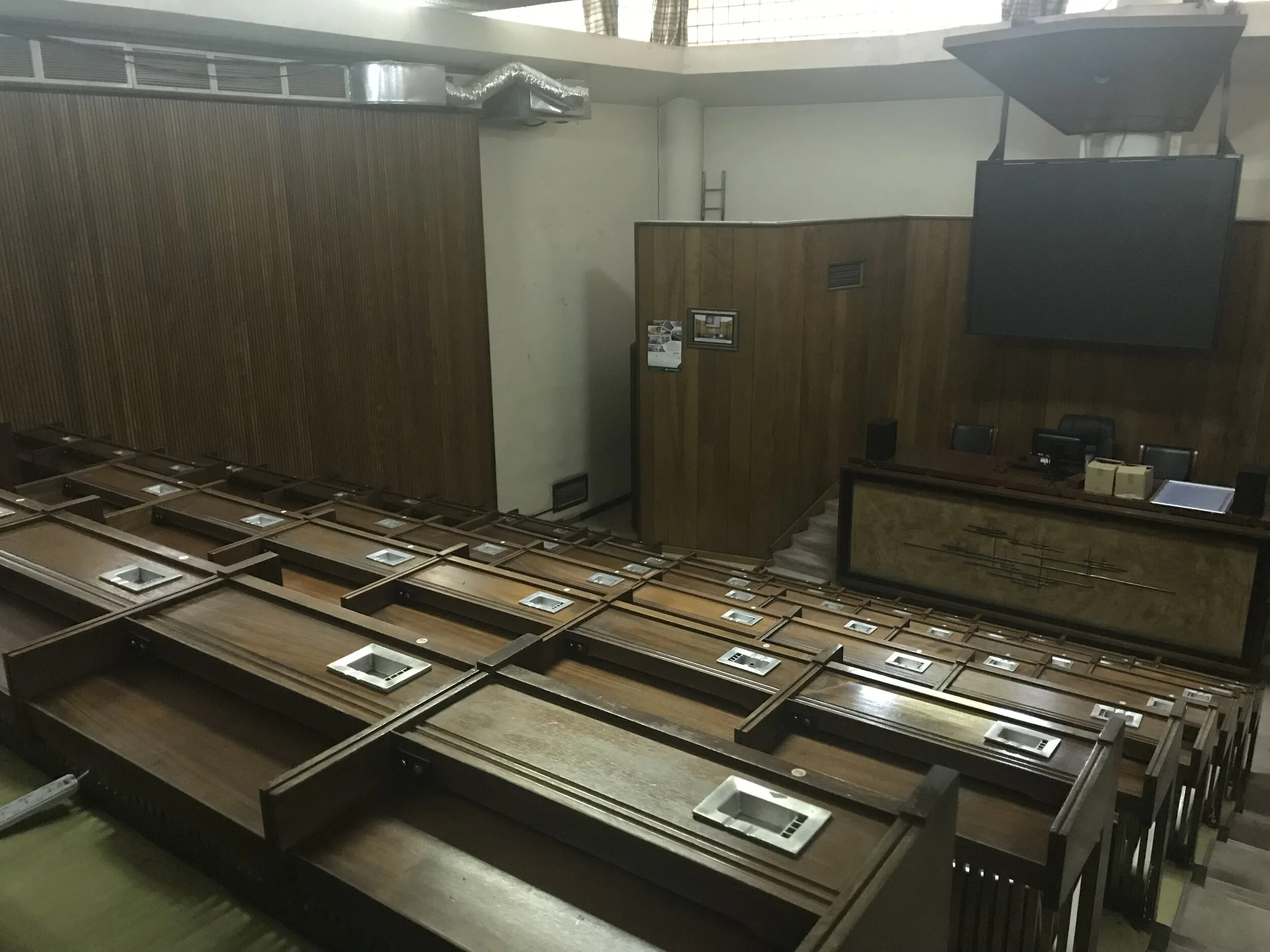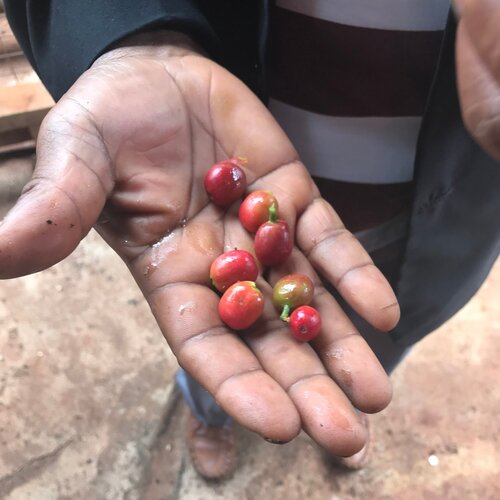This past June, the opportunity arose for me to travel to Nairobi, Kenya for the second time. This time I tried my luck and through local connections was able to find Willson, a coffee dealer, to give me a brief tour through different aspects of the coffee industry in Kenya. Although Kenya is renowned for its coffee, it has long been a primarily tea consuming country due to its history of occupation by British colonizers. In Kenya, there is an increasing market and desire for coffee, particularly specialty coffee among the younger crowd in Nairobi. I was able to briefly meet Hilary, who after only a year of training became the 2019 Kenya National Barista Champion, and also placed 2nd at the African Barista Championships the same year. He gave me some milk steaming tips and shared about the growing specialty coffee culture in Nairobi.
On the day of the tour, we left the Lavington area to pick up Willson in the center of Nairobi’s business and government district. Our first stop was the National Coffee Auction; this is where dealers test and bid on coffees. All of the coffee from the entire country is put up for auction in this building. As a dealer, Willson, explained to us what he goes through when buying coffee for businesses overseas: his clients tell him what kind of coffee they are looking for, he cups samples of coffees, and then bids on the coffees that fit that profile at the next auction. Dealers work with marketing agencies internationally as well as domestically. At the time of our visit, they were on June recess, so the sample room that is usually full of coffee was bare and we were able to spend time in the auction room. When it is in session, auctions are held every week on Tuesdays. All auctioning is done electronically through an automated system connected from dealers’ seats to the main system. In the sample room, we were able to look at all the different grades of Kenyan coffee: Elephant, AA, AB, peaberry, C, TT, T, these grades are based on bean size. Just outside of the auction is an old building that used to process a good portion of the coffee grown in Kenya, although now this mill is no longer in use as most milling is done closer to the source.
From here we drove out of the traffic of the city about 60km outside into the countryside to visit a coffee mill. The mill we visited is a cooperative and serves smallholder farmers from the surrounding area. This mill processes coffee through the washed method, meaning that the beans are pulped, washed and then dried inside their parchment on large beds in the sun. On these beds, they are sorted through and coffee that is not suitable for sale is discarded. On the property they have coffee trees of different varietals planted to show farmers how these trees should look if properly grown as well as how to graft different coffee trees together to help fight diseases. Along with the coffee trees they also had a handful of macadamia trees. This particular co-op has over 1,000 members, several hundred of which are currently active. All water used during processing is filtered and used again in future cycles; they also save all pulp and sell it to farmers to be used as nutrient rich fertilizer.

These coffees represent all of the different grades found in Kenyan coffee. The screens on the far end of the table are used to sort the coffee by size.

The auction room where dealer’s bid on coffee.

On our drive back to the city we made a quick stop at the National Coffee Research Center in Kiambu. Here we met with a professor and visited the coffee museum. This museum was an entire collection of all known coffee varietals found throughout the world, both arabica and robusta. There are 4 main varietals of coffee that grow in Kenya: K7 – low altitude, SL28 – medium altitude, SL34 – high altitude with good rainfall, and Ruiru 11 – grows well in all areas and is disease resistant. Seeing all the varietals and species of coffees in one place showed me just how different these varietals are even when they are grown in the same place under the same conditions.
Our last stop was a marketing agency in Nairobi. After traveling in and out of the city from the early morning to the late afternoon, we were grateful to be handed a cup of coffee. Here we walked through their sampling room where they sample roast and cup all the coffees before purchasing them at auction. This particular agency worked mostly with importers from Europe and the US, including Olam, who was the importer of a Kenyan Peaberry coffee we served last Spring.
continued in next blog post…






